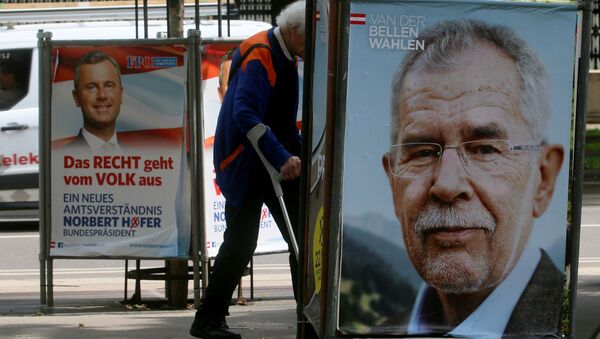“I think it is not the same in Austria as in France in 2002. The FPO is stronger. The two major Austrian parties are out of the game. The situation is fantastic. There is a possibility to win [for the Freedom Party candidate Norbert Hofer]," the lawmaker, who is a member of the Europe of Nations and Freedom Group in the European Parliament, told Sputnik.
The candidates from the two mainstream Austrian parties – the Social-Democratic Party (SPO) and the Austrian People's Party (OVP) that currently form ruling government coalition — lagged behind in the first round of the vote, each only managing to win 11 percent of the vote.
After Hofer's strong performance, which was unexpected by many and not predicted by any polls, some pundits suggested that the main parties would rally around van der Bellen simply to avoid a far-right victory.
Hofer has been campaigning on anti-immigrant and anti-EU platform. According to opinion polls, support for his party exceeds currently 30 percent, making it likely that the FPO will enter the federal government following the parliamentary elections, due in 2018.




